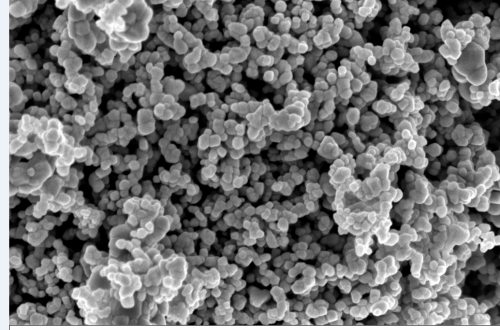Copper oxide nanopowder is a brown-black metal oxide powder with a wide range of uses. In addition to the role of catalysts and sensors, an important role of nano copper oxide is antibacterial.

The antibacterial process of metal oxides can be simply described as: Under the excitation of light with energy greater than the band gap, the generated hole-electron pairs interact with O2 and H2O in the environment, and the generated reactive oxygen species and other free radicals chemically react with the organic molecules in the cell, thereby decomposing the cell and achieving antibacterial effect. Since CuO is a p-type semiconductor, it has holes (CuO) +, which may interact with the environment to play an antibacterial effect.
Studies have shown that nano CuO has good antibacterial ability against pneumonia and Pseudomonas aeruginosa. Adding nano copper oxide to plastics, synthetic fibers, adhesives and coatings can maintain high activity for a long time even in harsh environments.
An international interdisciplinary team of scientists from the University of Leuven, the University of Bremen, the Leibniz School of Materials Engineering and the University of Ioannina have successfully used nano copper oxide compounds and immunotherapy to kill tumor cells in mice without a recurrence of the cancer.
The treatment is new knowledge about tumors’ aversion to certain types of nanoparticles.The team found that tumor cells were particularly sensitive to nanoparticles made from copper oxide.
Once inside the organism, these copper oxide nanoparticles dissolve and become toxic, killing cancer cells in the area.The key to the new nanoparticle design is the addition of iron oxide, which allows it to kill cancer cells while keeping healthy cells intact, the researchers said.

Metal oxides can be dangerous if we ingest them in large quantities, but at the nanoscale and at controlled, safe concentrations, they are virtually harmless.
Post time: May-08-2021



